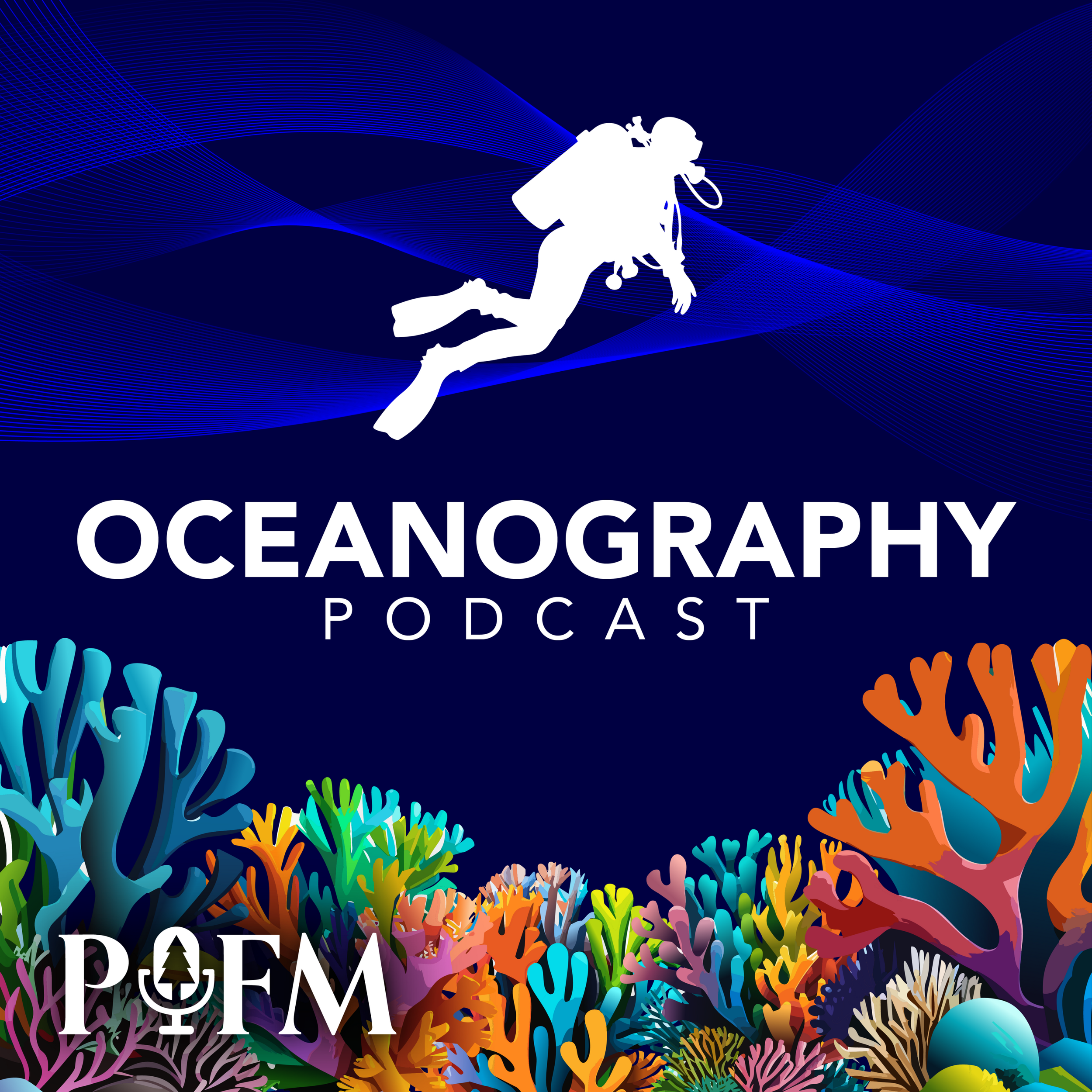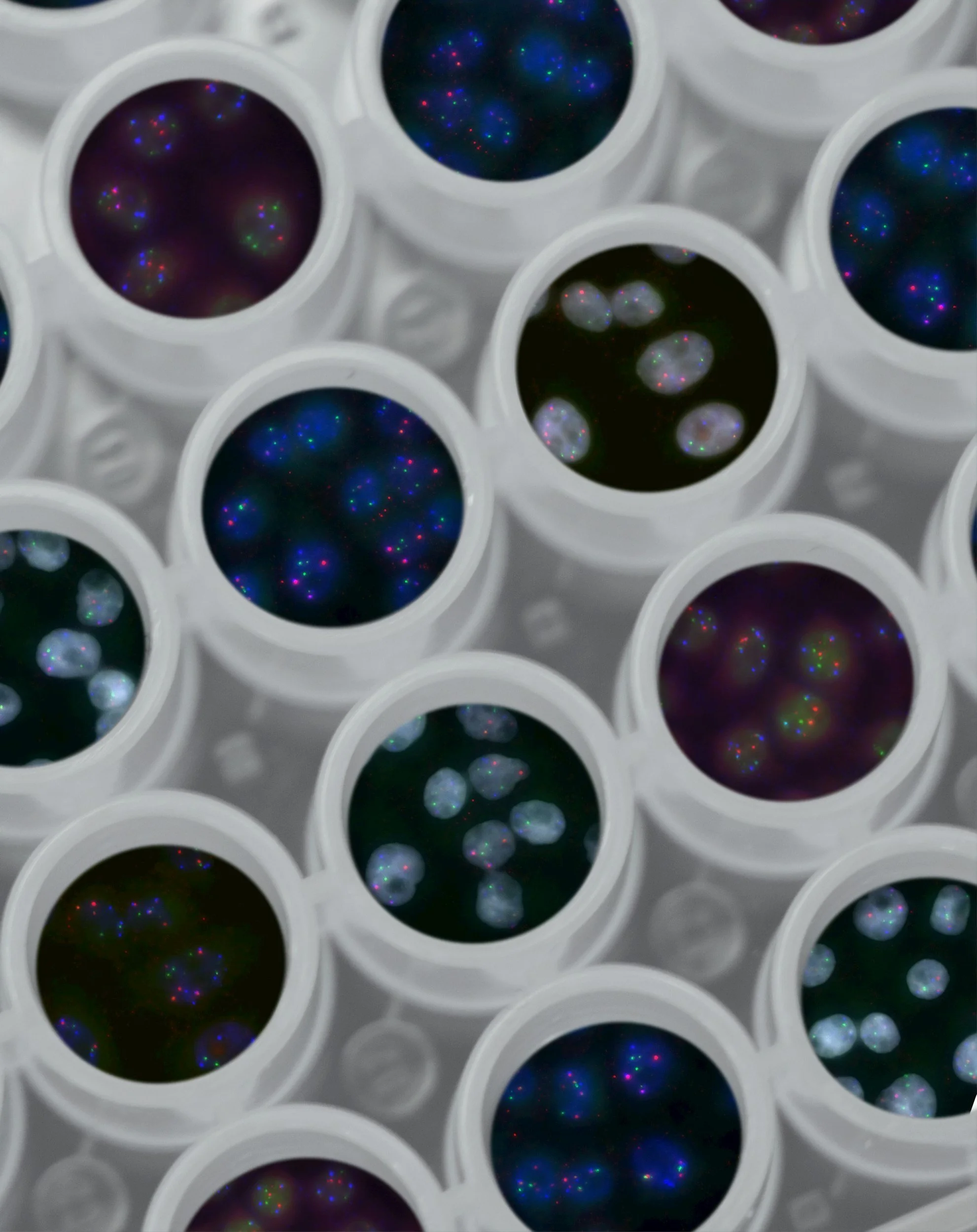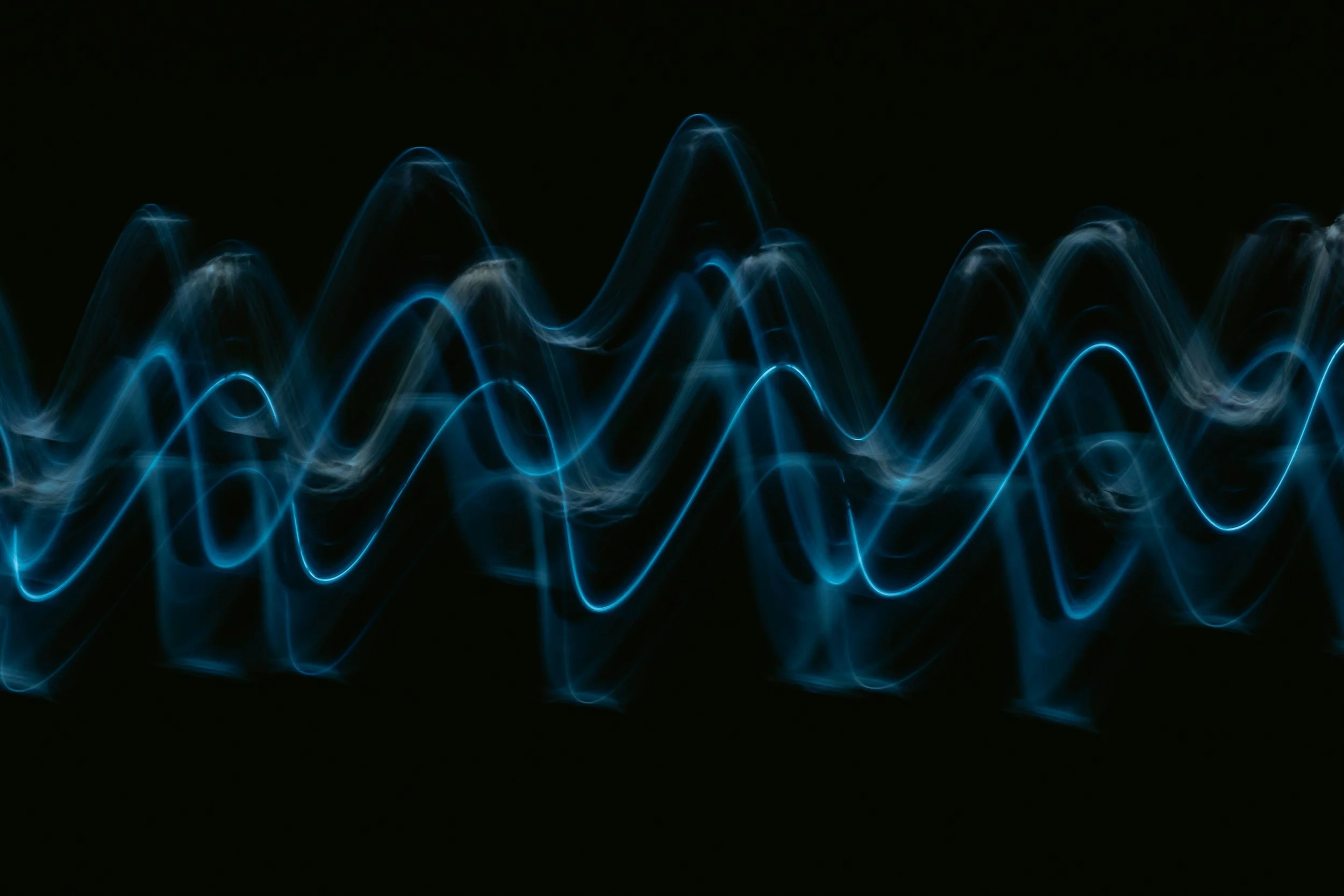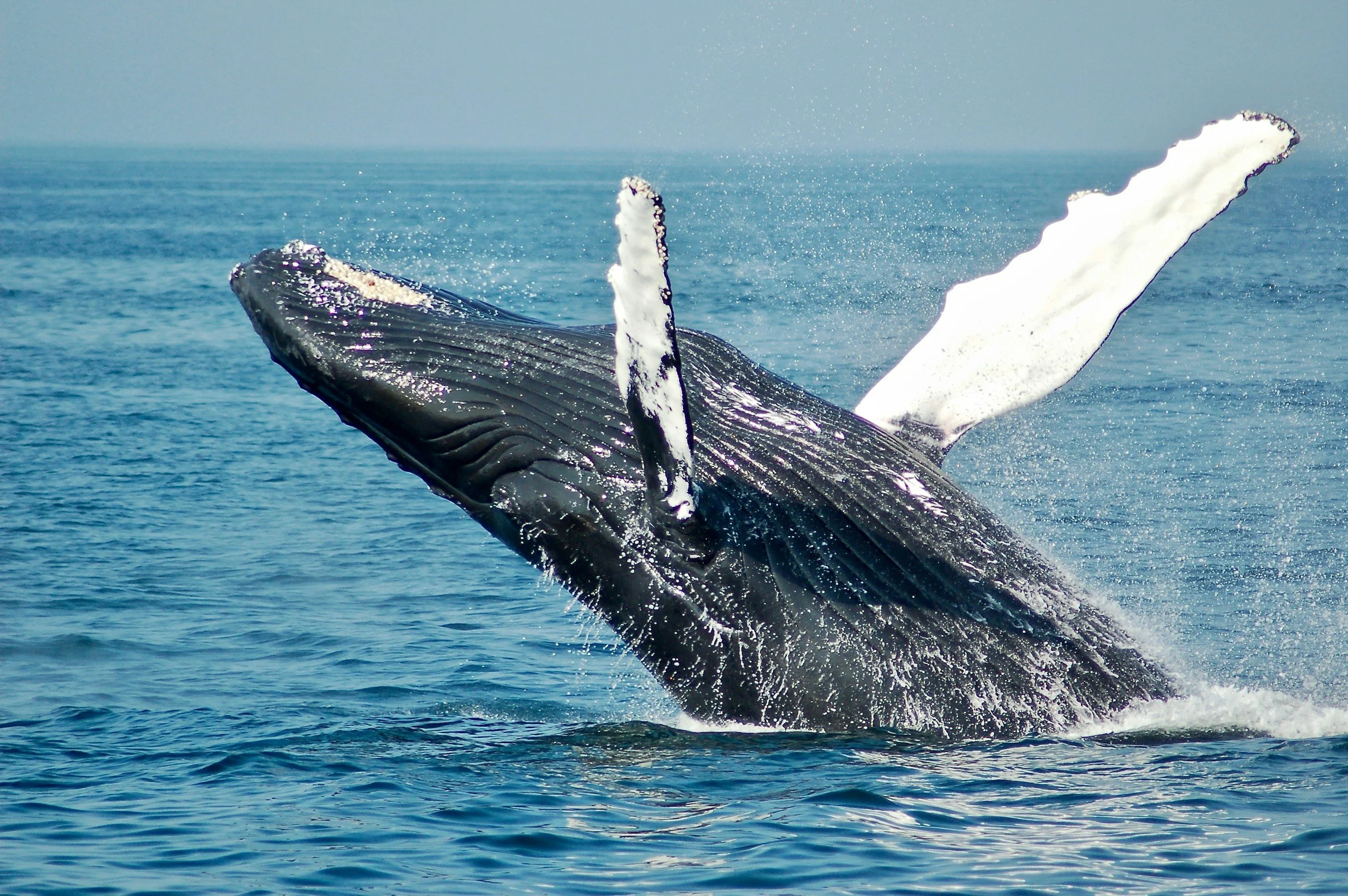
Oceanography Podcast
Oceanography: Science Beneath the Surface
Oceanography is a weekly podcast that explores the ocean’s most urgent stories—from marine biology and conservation to climate science and global policy. Hosted by science communicator Clark Marchese and produced by Pine Forest Media, each episode dives into the challenges and discoveries shaping our relationship with the sea.
Through conversations with oceanographers, leading researchers, policymakers, and climate scientists from around the world, the series brings listeners beneath the surface to understand why healthy oceans matter—and what it will take to protect them.
Whether you’re passionate about biodiversity, curious about underwater ecosystems, or following international conservation efforts, Oceanography offers an immersive, interdisciplinary look at the blue heart of our planet.
This podcast been recognized as an official project of the United Nations Decade of Ocean Science for Sustainable Development (2021–2030).
This endorsement celebrates our mission to bring critical ocean science research and stories to the world, connecting global audiences with the scientists, innovators, and communities shaping the future of our oceans.
Turn seawater into a species map. In this episode of Oceanography, host Clark Marchese talks with OceanOmics director Dr. Michael Bunce about how eDNA (environmental DNA), DNA barcoding, and genomics reveal what’s living in the ocean—from microbes to megafauna—using just a few liters of water. We follow the journey from deck to lab, then into powerful, human-friendly AI dashboards that translate massive datasets into decisions about fisheries, marine protected areas, water quality, and climate resilience. We also explore citizen science with easy eDNA kits and how these data help detect invasive species and track ecosystem health over time. If you’re curious how OceanOmics is transforming biodiversity monitoring into actionable ocean intelligence, this conversation is your field guide.
Full Transcript here.
Listen now on Spotify, on Apple Podcasts, or wherever you stream
Antarctica’s Hidden Carbon Vault — Beneath the icy surface of the Southern Ocean lies a powerful ally in the fight against climate change: Antarctic blue carbon. In this episode of Oceanography, host Clark Marchese speaks with marine ecologist Dr. Narissa Bax about how deep-sea coral gardens, sponge fields, and seafloor ecosystems around Antarctica are quietly locking away carbon for thousands of years. Together, they unpack what makes Antarctic blue carbon different from coastal mangroves or seagrass, how climate change and global treaties shape its protection, and why these frozen carbon stores may hold a rare note of optimism for our warming world.
Full Transcript here.
Listen now on Spotify, on Apple Podcasts, or wherever you stream.
Oceans at Climate Week: What We Learned in NYC — From hopeful storytelling to emerging ocean science, this special solo episode of Oceanography brings you inside New York Climate Week through the lens of the sea. Host Clark Marchese shares how oceans shaped this year’s conversations — from Indigenous leadership and NOAA’s challenges to groundbreaking coral restoration and marine carbon removal. Discover how artists, activists, and scientists are redefining ocean storytelling and why it matters for our planet’s future. Whether you’re passionate about climate action, marine conservation, or science communication, this episode connects the dots between oceans, policy, and people
Full Transcript here.
Listen now on Spotify, on Apple Podcasts, or wherever you stream.
What is the Ocean Twilight Zone? Explore the mesopelagic (200–1000 m) and why it’s central to climate, fisheries, and biodiversity. Ocean Conservancy’s Chris Dorsett explains daily vertical migrations, lanternfish and vampire squid, and the biological carbon pump that shuttles carbon to the deep. We unpack emerging pressures—industrial harvest for fishmeal/fish oil, deep-sea mining plumes, and marine carbon-removal trials—and how science-based policy can safeguard this ecosystem before impacts stack up. Clear, accessible ocean science plus practical context on precautionary management make this a go-to primer for anyone curious about how mid-water life supports whales, tunas, and the health of our seas.
Full Transcript here.
Listen now on Spotify, on Apple Podcasts, or wherever you stream.
Antarctic fish with antifreeze blood are revealing critical clues about evolution and climate change. In this special crossover episode from South Pole, marine biologist Dr. Jilda Alicia Caccavo from the Institut Pierre Simon Laplace joins us to explore pelagic notothenioids — fish uniquely adapted to the icy waters of the Southern Ocean. Learn how their antifreeze proteins, colorless blood, and genomic traits help them survive extreme conditions, and why their future is under threat as ocean temperatures rise. Dr. Caccavo explains how genomics offers powerful insights into species vulnerability and resilience in a changing climate. If you're fascinated by cold-water biology, marine adaptation, or the impact of climate change on ocean life, this episode is for you.
Full Transcript here.
Listen now on Spotify, on Apple Podcasts, or wherever you stream.
Dive into Ghana’s coral future with Coral Reef Restoration Ghana, a nonprofit bringing new life to reefs and new opportunities to young scientists. Founder George Amadou and cinematographer David Selasi Kuwornu share how their groundbreaking Dive Lab—the first of its kind in Ghana—trains marine biology students to scuba dive, explore coral reefs, and capture stories through underwater film. We discuss the challenges of ocean access, cultural barriers around swimming, destructive fishing practices, and why media storytelling is essential for shifting mindsets toward conservation. This episode reveals how locally led initiatives can protect Ghana’s coral ecosystems while empowering the next generation of West African marine scientists and storytellers.
Full Transcript here.
Listen now on Spotify, on Apple Podcasts, or wherever you stream.
Discover how Marine Protected Areas (MPAs) protect our oceans and why California is home to the largest connected network in the world. In this episode, we sit down with Jamie Blatter, climate specialist and tribal liaison at the California MPA Collaborative Network, to explore how MPAs are created, maintained, and measured for success. Learn about the science proving their impact, the importance of community and tribal partnerships, and the role of MPAs in addressing overfishing and climate change. From grassroots engagement to global conservation lessons, this conversation highlights how collaboration, equity, and identity shape the future of ocean stewardship—and why optimism comes from action.
Full Transcript here.
Listen now on Spotify, on Apple Podcasts, or wherever you stream.
Tiny ocean drifters are shaping Earth’s climate. Microzooplankton, some no larger than a grain of sand, are crucial players in the biological carbon pump — the system that moves carbon from the atmosphere into the deep sea for long-term storage. In this episode, PhD candidate Erin Jones explains how these single-celled organisms regulate climate, why their diversity matters, and what NASA’s EXORTS program is uncovering using satellites and DNA sequencing. From the invisible communities floating in seawater to the global carbon cycle, we explore how the ocean’s smallest creatures are connected to the planet’s biggest challenges. Discover why unlocking their secrets could reshape climate predictions — and why the future of carbon sequestration depends on them.
Full Transcript here.
Listen now on Spotify, on Apple Podcasts, or wherever you stream.
Glowing sharks & blue beaches spark curiosity— journey with marine ecophysiologist Dr. Laurent Duchâtelet into the luminous world of ocean bioluminescence. Discover how lantern sharks, dragonfish, plankton and more deploy living light for hunting, hiding and flirting; why wavelengths shift from blue to green to rare red; and how decoding luciferin–luciferase chemistry is powering pollution sensors and cancer diagnostics. Guided by deep-sea ROV footage and decades of lab work, this conversation illuminates 90 independent evolutions of glow, the sport-utility of bio-light, and the urgent need to fund fundamental ocean science before these wonders wink out. If you’ve ever dreamed of swimming through spark-lit surf or marveled at fireflies, this episode reveals the science behind the magic—and what we still don’t know.
Full Transcript here
Listen now on Spotify, on Apple Podcasts, or wherever you stream.
Why the UN declared an Ocean Decade -
The United Nations Ocean Decade of Ocean Science for Sustainable Development (2021–2030) is more than a global framework—it’s a chance to rethink how science informs action. In this episode, Alison Clausen, Global Deputy Director of the Ocean Decade at UNESCO’s Intergovernmental Oceanographic Commission, explains what the Decade is aiming to achieve by 2030 and how its legacy will carry forward. We discuss the role of Indigenous and local knowledge, the meaning of “success” beyond the ten-year mark, and how upcoming international ocean conferences fit into the bigger picture. Whether you’re just hearing about the Ocean Decade for the first time or looking for context behind the headlines, this conversation offers a clear and timely introduction.
Full Transcript here
Listen now on Spotify, on Apple Podcasts, or wherever you stream.
Plastic straws and sea turtles collide in this episode featuring marine biologist Dr. Christine Figgener, whose viral 2015 video of a straw pulled from a turtle’s nose launched a global anti-plastic movement. We explore the long history of sea turtles, the modern threats they face from plastic pollution, and how science and activism can work together to drive change. From migration research to marine conservation, Dr. Figgener reflects on a decade of impact and the future of ocean health. Originally aired on Plastic Podcast, this episode is cross-posted on Oceanography due to the urgent overlap between ocean ecosystems and plastic waste.
Full Transcript here
Listen now on Spotify, on Apple Podcasts, or wherever you stream.
How deep sea worms eat without a mouth is just one of the astonishing discoveries in this episode with microbial symbiosis expert Dr. Shana Goffredi. We dive into the strange and beautiful world of methane seeps and hydrothermal vents, where animals form life-saving partnerships with chemosynthesizing bacteria. From feather duster worms powered by natural gas to mixotrophic anemones thriving in volcanic vents, learn how cooperation fuels entire deep sea ecosystems — and helps prevent methane from reaching our atmosphere. These microscopic alliances are transforming how we understand evolution, resilience, and oceanic carbon cycling.
Full transcript here.
Listen now on Spotify, on Apple Podcasts, or wherever you stream.
Fish full of pharmaceuticals. Submarine groundwater discharge is quietly delivering human contaminants—like heavy metals, fertilizers, and even antidepressants—into our oceans. In this episode of Oceanography, marine geochemist Dr. Tristan McKenzie explains how these hidden pathways are impacting coastal ecosystems around the world. Drawing from fieldwork in Hawaii and Sweden, he breaks down the science behind groundwater pollution, shares the results of a global contamination risk map, and discusses the surprising ways contaminants disrupt both marine life and biogeochemical cycles. You’ll also learn why some of the world’s most biodiverse coasts are at highest risk—and how you can help. This is a deep dive into ocean contamination, climate interactions, and the data behind it all.
Full transcript here.
Listen now on Spotify, on Apple Podcasts, or wherever you stream.
Episode Description: Whales whisper, volcanoes rumble, and fish sing at sunset. In this episode of Oceanography, host Clark Marchese explores the science of underwater sound with marine biologist and bioacoustics researcher Dr. Jesús Alcázar-Treviño. You'll learn how toothed whales use echolocation to hunt in the deep sea, how volcanic eruptions reshape marine soundscapes, and why some whales may be mistaking plastic for prey. We also dive into the impacts of human-made noise—like shipping and seismic testing—on marine ecosystems. With fascinating stories from the Canary Islands and deep-sea research insights, this episode is your gateway into the hidden world of ocean acoustics and marine conservation.
Full transcript here.
Listen now on Spotify, on Apple Podcasts, or wherever you stream.
Episode Description: New tech is making waves in marine science. In this debut episode of Oceanography, we dive into the world of innovative fishing gear designed to protect endangered species—especially the North Atlantic right whale. Guest Megan Amico, a fisheries biologist with NOAA, shares how scientists and fishermen are working together to reduce harmful bycatch through smart design, including on-demand lobster traps and turtle excluder devices. It’s a story of unlikely partnerships, inventive problem-solving, and measurable success. If you care about marine life, sustainable fisheries, or just love a good science story, this is one you won’t want to miss. Learn how collaboration is helping coastal communities thrive while giving ocean wildlife a fighting chance.
Full transcript here.
Listen now on Spotify, on Apple Podcasts, or wherever you stream.
